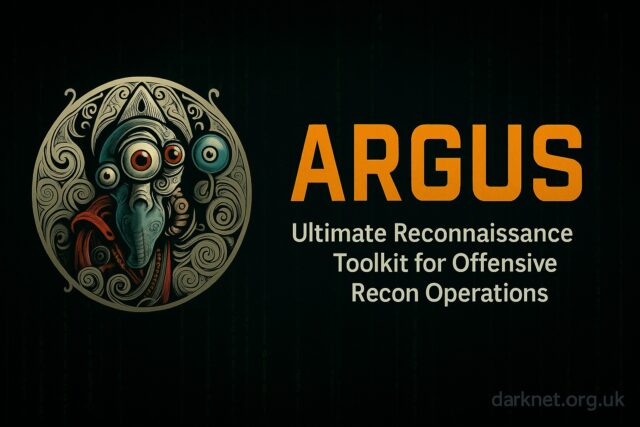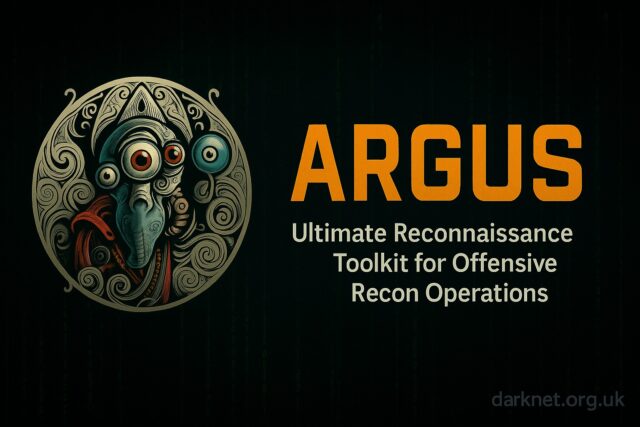Argus is an actively maintained Python-based toolkit that consolidates a wide range of reconnaissance modules into a single CLI interface. Designed for red teamers and offensive security operators, it covers everything from DNS resolution and subdomain enumeration to SSL inspection, data leak discovery, and threat intelligence—all from a single, menu-driven environment.

It aims to eliminate the need for scripting multiple recon tools together, especially during early attack surface mapping or OSINT phases.
Installation and Usage
Clone the repository and install the required dependencies:
git clone https://github.com/jasonxtn/Argus.git cd Argus pip install -r requirements.txt python argus.py |
Once launched, Argus presents an interactive menu of numbered modules. Modules requiring API keys (like VirusTotal or Censys) can be configured by editing config/settings.py.
Feature Highlights
Argus includes over 50 reconnaissance modules grouped into three broad categories:
- Network & Infrastructure
DNS records, IP geolocation, open ports, WHOIS data, and server banners - Web Application Analysis
CMS detection, directory brute-forcing, cookie analysis, sitemap crawling, and performance tests - Threat Intelligence & OSINT
Subdomain enumeration, subdomain takeover checks, SSL/TLS misconfigurations, paste site monitoring, public leak lookup, and VirusTotal analysis
This breadth makes Argus a one-stop recon solution, beneficial during early target profiling.
Red Team Use Cases
Argus excels in the early stages of a red team operation where situational awareness is essential. Its ability to discover subdomains, enumerate ports, fingerprint technologies, and surface exposed credentials enables rapid decision-making about potential attack vectors.
By reducing tool sprawl and setup time, Argus enables faster OSINT pivots and infrastructure targeting without losing context between tools.
Comparison to Alternatives
While tools like Domained, Amass, and theHarvester offer deep functionality in specific niches, Argus prioritises consolidation. Its modular, all-in-one interface provides good-enough capabilities across a wide range of reconnaissance techniques, which is often more helpful in agile or time-constrained operations.
Detection Considerations
Most Argus modules employ passive or semi-passive techniques, such as DNS queries, HTTP headers, or public API lookups. Active modules (e.g. port scans) can generate noise and should be throttled or used through proxies when OPSEC is a concern.
Limitations
- Several modules rely on external APIs that require manual configuration
- Some features (e.g. the “report_generator” module) are currently broken or incomplete
- It does not replace deep recon tools or authenticated web fuzzing frameworks
Summary
Argus is a versatile reconnaissance toolkit for red teams who value breadth, portability, and simplicity. It covers the essentials of network, DNS, and web reconnaissance with enough flexibility to be used in fast-paced engagements. While it won’t replace best-in-class tools for deep discovery, it offers a practical entry point that reduces time-to-data during early enumeration.
You can read more or download Argus here: https://github.com/jasonxtn/Argus
